You may hear about Consular Authentication and Apostille when dealing with procedures to use your documents in a foreign country. Although these two certificates serve the same purpose which is to enable an official document to be recognized legally in another country, there are several differences you need to distinguish before legalizing your documents.
In this article, we will not delve into requirements or processes, which can be quite overwhelming if you are new to this topic. Instead, we will give you a general overview of the differences between Authentication and Apostille so you will be able to tell which is the one you need for your documents.
Authentication or Consular Authentication is a certification placing the Consular seal over official documents to verify the authenticity of the documents. However, the Consular Authentication merely verifies the signature, stamp, and title of the signing officer on the documents, not the nature of the contents.
Take a look at our Consular Authentication article to learn more!
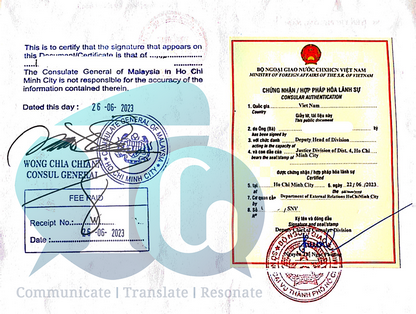
According to the U.S. Department of State, an Apostille is an authentication certification issued in accordance with the requirements of the Hague Apostille Convention. Similar to Consular Authentication, an Apostille simply attests to the seals and the signatures of officials on documents issued by a public authority.
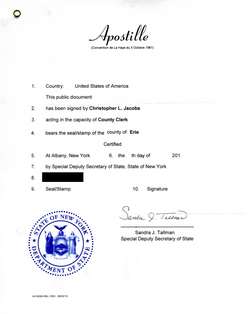
It’s important to bear in mind the above definitions since they relate to the primary differences between Authentication and Apostille. In the next section, we will give you simple explanations to have a better understanding of those terminologies:
Authentication procedures help local governments have control over the foreign documents used in their countries. They can ensure that the foreign documents are valid and comply with national laws.
According to the Hague Conference on Private International Law (HCCH), Apostille is to simplify the traditional process of legalizing documents issued by another country. Therefore, individuals or enterprises can save time and effort on complex administrative procedures. However, there are exceptions where authentication is still necessary for special reasons.
Apostille applies to the countries that are members of the 1961 Hague Convention Treaty. On the other hand, Authentication is required in other countries that are not parties to this convention.
If either the issuing country or destination country is not a member of Apostille, you may need to seek Consular legalization. For example, US documents need to obtain Consular Authentication before they can be used in Vietnam.
The latest number of parties to this Convention is 126, the list includes:
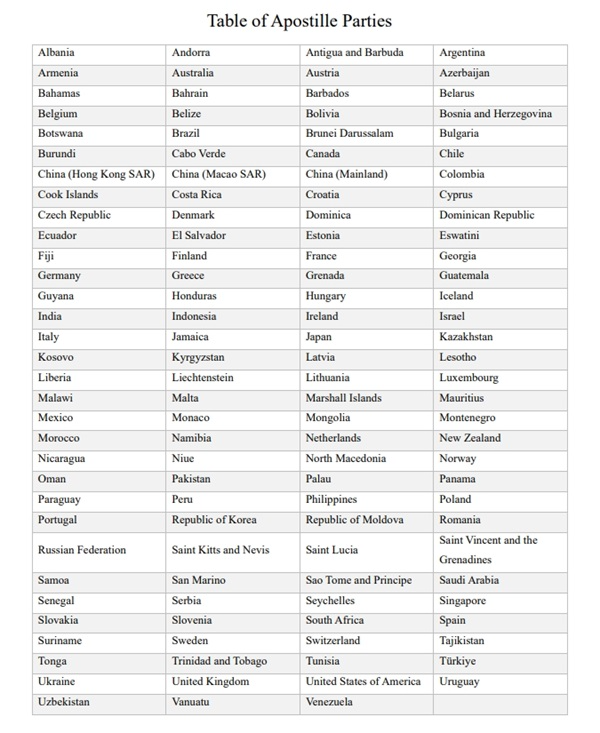
The Authentication process includes a series of officials in relevant countries. After authenticating your documents at the authority of the issuing country, you have to take a few further steps which are authentication and notarization at the competent authorities of the destination country.
Apostille legalization is similar, but it replaces authentication proceedings with only one step of obtaining an Apostille in the issuing country. A document affixed with an Apostille seal can be recognized legally in all 125 party countries of the Hague Convention. There is no need to obtain additional certification from the embassy or consulate of the related countries.
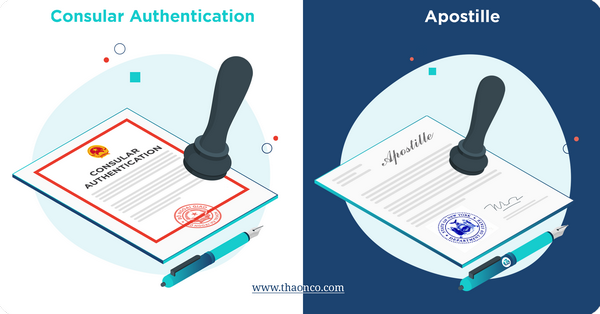
There is a variety of circumstances where you may need to obtain Consular Authentication or Apostille. Most of these cases are related to legal purposes such as immigration applications, international joint ventures, import and export or financial activities, etc.
Knowing which type of certification you need will save you from mistakenly obtaining the wrong one. Here is a step-by-step guide to help you learn whether Authentication or Apostille is required for your documents:
1. Check the requirements for your purpose.
This is an essential step since not every situation requires documents to be legalized for use in another country. Apostille and Authentication are commonly required for official documents such as Passports, Birth Certificates, Marriage Certificates, Driver’s Licenses, Business Licenses, Contracts, etc.
2. Check whether the issuing country or destination country of the documents is a party in Apostille.
You can find the updated list of the parties on the HCCH website or in our table above.
3. Check the requirements of Authentication or Apostille.
Authentication or Apostille only verifies the documents that have seals of Public Notaries. Furthermore, if the issuing country and destination country don’t use the same language, you may need to get notarized translations of your documents and relevant Consular certificates or Apostille certificates.
The particular requirements differ from country to country and office to office. You can find out the specific requirements on the official website of diplomatic missions in the destination country.
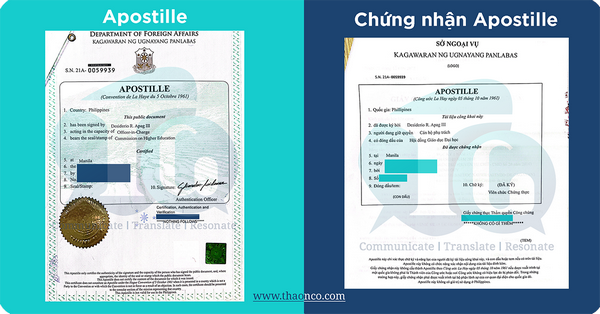
Since 2013, Vietnam has participated in the Hague Convention for certain instruments. However, the Apostille Convention is not one of those instruments, so foreigners and international cooperations still need Consular Authentication. In most cases, your documents also need to be translated into Vietnamese before applying for government’s approval and putting them into use.
Authentication may be challenging for foreigners, especially those who are more familiar with Apostille. Understanding your struggles, Thao & Co. offers certified/notarized translation and legalization as supporting services to help you solve this task. As a professional translation agency, we know how to navigate this complex process and make it easier for you to obtain different types of translation and authentication.
For further details, do not hesitate to contact us via our website Thaonco.com or click on the Get A Quote button!